The Federal Government yesterday dismissed the claim that it has reintroduced petrol subsidy payment.
President Bola Tinubu announced the termination of subsidy regime during his inauguration on May 29.
The policy triggered some economic consequences, which led to protests by the organised Labour.
Last week, the Tinubu administration averted a planned indefinite strike by Labour centres with the introduction of more relief packages.
The packages include payment of N35,000 provisional wage to all categories of federal workers for six months; payment of N25,000 to 70 million households for three months and freezing of the 7.5 per cent Value Added Tax (VAT) payment on diesel for six months, among others.
Oil marketers and a section of organised Labour recently alleged that the government had restored subsidy.
But Nigerian National Petroleum Company Limited (NNPCL) Group Chief Executive Officer (GCEO) Mele Kyari told reporters in Abuja yesterday that fuel subsidy had not returned.
He also said at an energy summit that Nigeria would by next year become a net exporter of petrol.
“There’s no subsidy whatsoever. We are recovering our full cost from the products that we import. We sell to the market, we understand why the marketers are unable to import. We hope that they do this very quickly and these are some of the interventions the government is doing. There is no subsidy.” he said after meeting with President Tinubu in Abuja.
The NNPCL boss also dispelled fears of an impending petrol scarcity, saying the country has 1.4 billion litres of the product.
He explained that the few fuel queues seen in some parts of the country, especially in the North, could be due to logistics gaps and price differentials among filling stations.
Noting that there was a scarcity of foreign currency, Kyari expressed optimism that it would soon be resolved.
He said: “We have seen, in very few states, pockets of queues. They are not unconnected with road situations that force drivers to reroute their trucks through many locations before reaching their destinations. This creates delays and some supply gaps.
“Secondly, because of the full deregulation that we have in this sector, marketers are now competing amongst themselves.
“When you see some fuel stations reduce price by N2 or N3, customers will naturally run to such station. When such happens, people will think that there’s an ominous sign of scarcity.
“”We have over 1.4 billion litres of product in our hands, both marine and land. So, there should be no fear.
“We are also happy that market forces are now playing out and marketers are competing. But there are a few issues we’re engaging them to resolve alongside other agencies of government. One of them is access to foreign exchange.”
At the ongoing Energy Summit by the Petroleum and Natural Gas Senior Staff Association of Nigeria (PENGASSAN), Kyari assured that there would be energy security in the country when “our refineries” come on board before the end of this year.
He also told the participants at the summit with the theme ”Petroleum Downstream Deregulation and Gas Utilisation,” that subsidy almost bankrupted the NNPCL.
The NNPC chief maintained that while it is difficult to ascertain the actual amount of petrol consumed daily in the country, evacuations from depots dropped by 30 percent since subsidy removal on May 29.
He said: “I have always said that we do not have credible data on petrol consumption in this country and the reason is very simple. This is because of the absence of technology and cross-border smuggling. There are also other factors in our system that do not allow us to have a fixed number around consumption. But we know the evacuation.
“Evacuation means every litre of product that leaves the depot is known because the trucks and the volume they carry are known. But once they get out of the depots, the next story is everybody’s guess.”

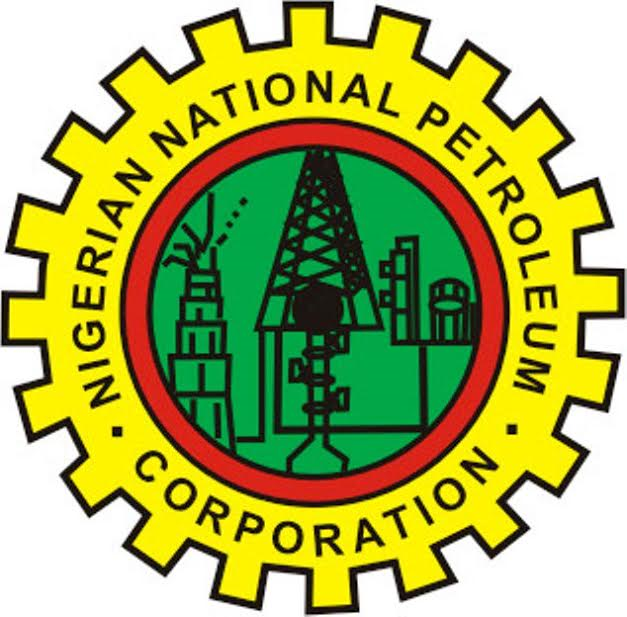
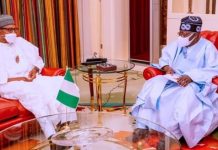
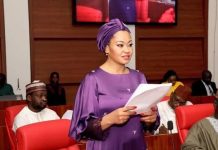

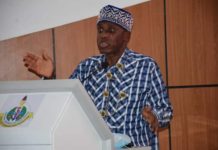
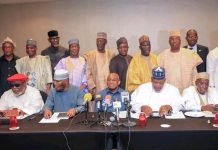
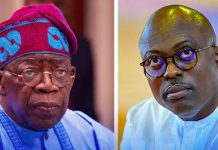

![Saraki’s 2023 presidential campaign posters flood Abuja [PHOTOS]](https://puoreports.ng/wp-content/uploads/2021/11/saraki-2023-100x70.jpg)